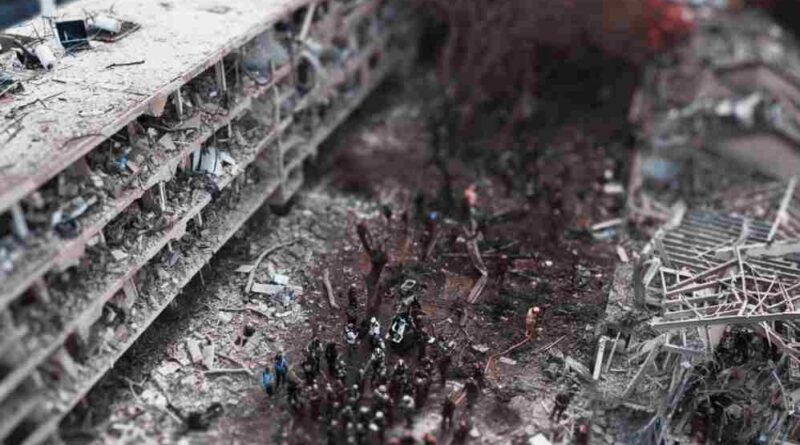Middle East Teeters on Edge as Israel and Iran Trade New Barbs Amid Regional Unrest
The Middle East is once again holding its breath as tensions between Israel and Iran surged sharply this week, following a reported missile attack that has heightened fears of a wider conflict. The latest chapter in this long-running rivalry unfolded late Friday, when Israel announced it had launched precision strikes targeting positions allegedly linked to Iran’s military forces. The attack came after days of intensifying rhetoric between the two nations, hinting at a dangerous escalation that could have global repercussions.
A New Wave of Violence
According to Israel’s military, the strikes were aimed at neutralizing sites used by Iran’s Revolutionary Guard Corps, which Tel Aviv claims have been facilitating arms shipments to militant groups across the Middle East. Israeli leaders stated the operation was a pre-emptive measure, designed to disrupt imminent attacks and protect its citizens. Meanwhile, Iranian authorities condemned the attack as an “unprovoked aggression” and warned of a “swift and devastating response” if its sovereignty were violated again.
Khamenei’s Defiant Message
In Tehran, Iran’s Supreme Leader, Ayatollah Ali Khamenei, used a rare public address to rally national sentiment. Speaking before a gathering of military and religious leaders, he accused Israel of acting as a “puppet” for external forces and warned that “those who provoke war must be ready to bear its consequences.” The aging Ayatollah reaffirmed Iran’s commitment to defending its interests and supporting its allies across the region.
Washington’s Mixed Signals
The United States, a long-standing ally of Israel, responded with a measured statement calling for restraint from both sides. However, former U.S. President Donald Trump added fuel to the fire with a sharp condemnation of the Biden administration, claiming its policies had weakened American influence and emboldened Iran. Trump’s remarks, delivered at a rally in Texas, reflected a deepening political divide within the U.S. over its role in the Middle East.
A Region on High Alert
Throughout the Middle East, tensions bubbled closer to the surface. Lebanon’s Hezbollah issued a statement of solidarity with Iran, hinting at its own readiness to mobilize if called upon. In Gaza, Hamas announced that its fighters were on alert, intensifying fears that any further Israeli action could spark a multi-front conflict. Meanwhile, Iraq and Syria watched nervously as the possibility of proxy battles spreading across their borders became more real.
What Comes Next?
For now, the world waits and watches. The United Nations has called for an urgent session to de-escalate the crisis, with global leaders fearing that missteps—or miscalculations—could trigger a broader war. The coming days will be pivotal for both Israel and Iran as they balance aggression with restraint, knowing that a single mistake could plunge the Middle East into yet another devastating conflict.
While the crisis has deep historical roots, the events of June 21 mark a new chapter in this long-running rivalry. The stakes have never been higher, and the world can only hope that cooler heads prevail before this latest flashpoint ignites into something far more costly.
Disclaimer
The information and content shared on digitalgithub.com — including articles, blogs, news, guides, and other resources — is intended for general informational and educational purposes only. We do not guarantee the completeness, reliability, or suitability of any information. Always seek the guidance of a qualified professional before making decisions based on the information you read. Use this site at your own risk.

